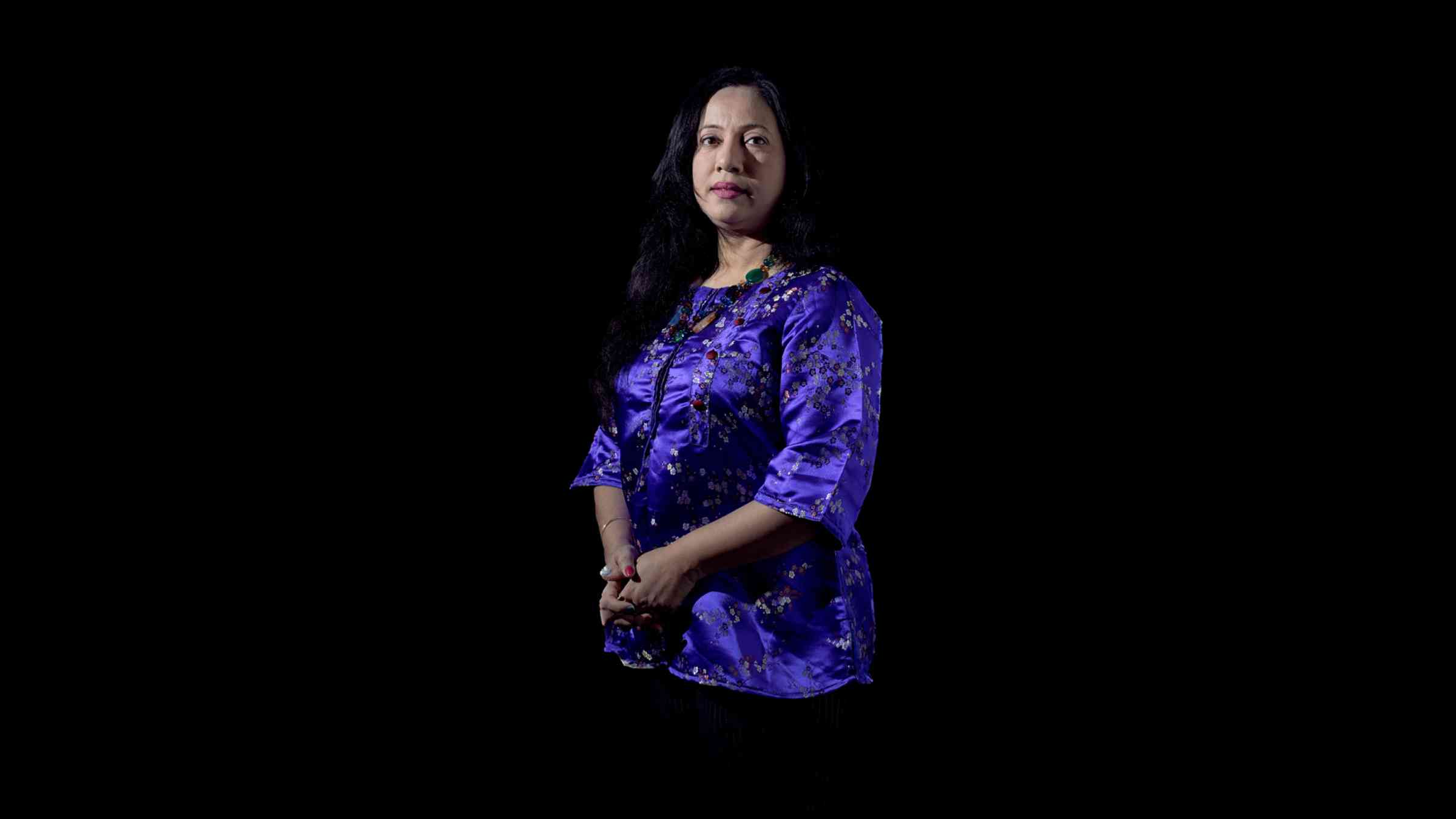Shaila Shahid: “Women are the faces of resilience. They are the invisible force for transformative change.”

In 1991, a young student in her home country of Bangladesh, Shaila Shahid experienced one of the deadliest tropical cyclones ever recorded.
At the end of April, the storm hit near the Chittagong region, one of the country’s most populated areas. An estimated 140,000 people were killed, as many as 10 million people lost their homes, and overall property damage was in the billions of dollars.
“I saw first-hand the sufferings of the people and of women in particular,” Shaila says. “A large majority of the victims were women. That gave me the motivation to work for disaster risk reduction and I therefore decided to study environmental law.”
After graduating, Shaila started her career as an environmental lawyer and went on to working for UNDP Bangladesh in a comprehensive Disaster Management Programme. “That is when my DRR career formally started,” she recalls.
More than 30 years later, her dedication to DRR has not declined, on the contrary. Over the span of her remarkable career, Shaila has held a number of technical, advisory and managerial roles. Currently, she is an Advisory Board member of ‘Tomorrow’s Cities’ (the Urban Disaster Risk Hub of the UKRI and GCRF initiative), as well as Senior Advisor of the Pitachara Forest and Biodiversity Conservation Initiatives, and of the National Alliance on Drowning Prevention. Prior to this, she held several governmental positions, including Chief Operating Officer of the Disaster Climate Change Unit within the Department of Public Health Engineering.
Thanks to her wealth of knowledge and cross-sectoral experience, Shaila has been instrumental in strengthening the legal and institutional frameworks for disaster risk reduction and building community resilience in Bangladesh. She has also played a pivotal role in capacity building and engaging diverse stakeholders in DRR, empowering government agencies, local communities and civil society organizations with the knowledge and skills to effectively address disaster risks and adapt to climate change impacts.
Ever since she engaged in the field, gender considerations have always taken center stage for Shaila. She has consistently been a strong advocate for gender equality in DRR at the national, regional and global levels.
“As a woman working in DRR, you are not always given equal opportunities when applying for a job, for example, or being invited to high-level meetings or to high-level decision-making instances. These structural barriers still very much exist. I have experienced them personally, time and time again.”
She continues: “when a disaster strikes, the specific needs of humanitarian female workers are often not addressed. Their security is often not guaranteed. Their strength, caregiving support, wisdom and resilience make a big difference. However, we do not see the minimal support that needs to be provided to them.”
“I try to be always bring up these issues wherever I get the opportunity to. I raise my voice and exercise my influence using every opportunity I am given, along with my female peers and counterparts. Together, we spread the message of how women's leadership and involvement can really bring about a more inclusive society.”
Reflecting on her winning the 2023 WIN DRR Leadership Excellence Award, she says: “my responsibility is now broader. Hopefully by the end of this year we will have a Gender Action Plan for the Sendai Framework. I will keep disseminating those messages and working on the implementation of the technical recommendations at the local, national and global levels in terms of capacity-building, access to resources, women-friendly technology and infrastructures, and so on.”
Finally, to the women who work in DRR or intend to do so, she sends the following message: “I want to tell you to be purpose-driven, to carry your emotions and your spirit for the cause of reducing the risk of disasters, particularly for women. They are the true faces of resilience. They are the invisible force for transformative change.”